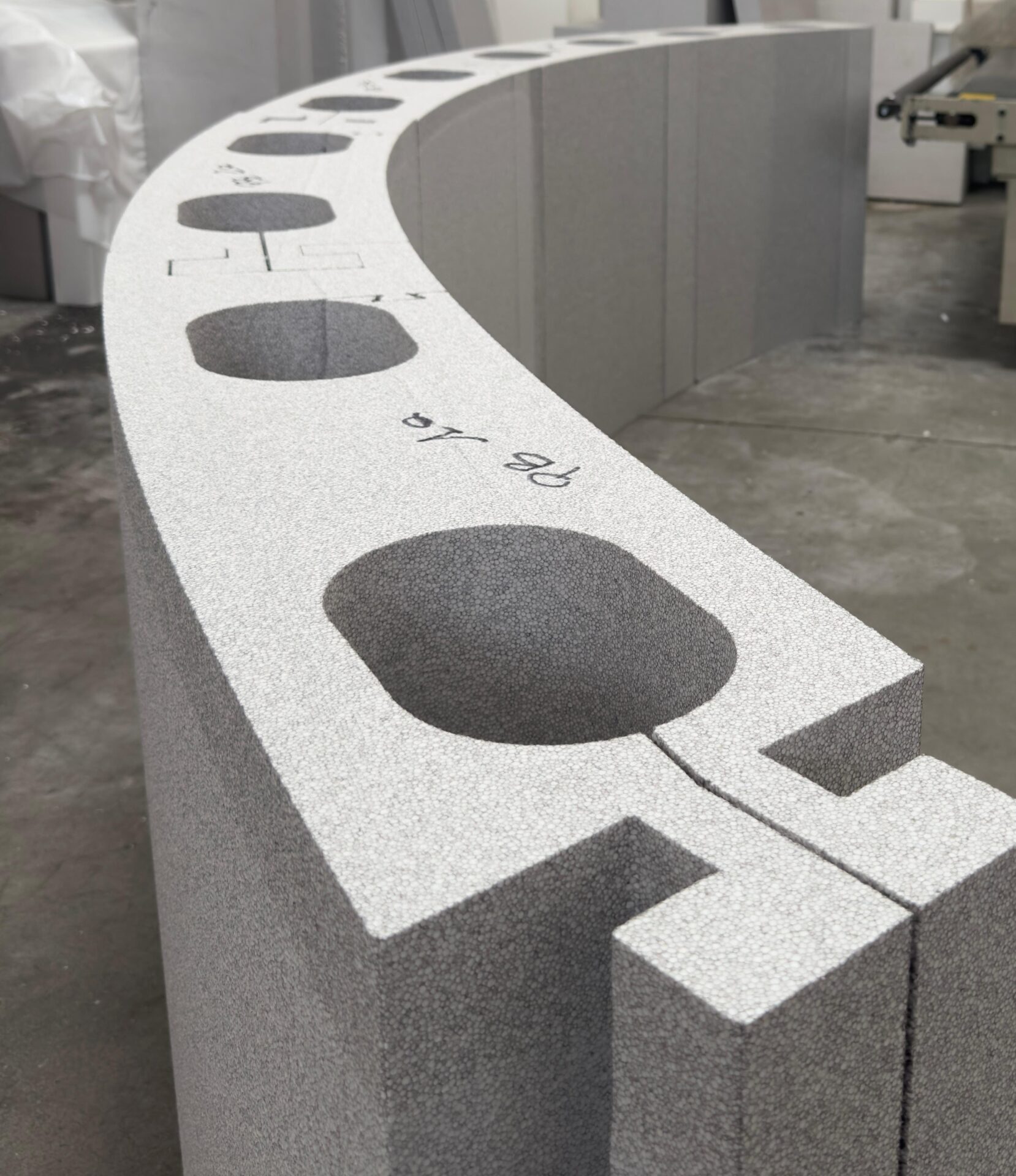With EPS formwork, pools are built
What are EPS formwork?
EPS (Expanded Polystyrene) formwork is structures used in construction to shape and support concrete during the pouring process.
Expanded Polystyrene is a lightweight and insulating material, commonly used to create formwork that is positioned before pouring concrete. These formwork provide the desired shape to the structure under construction and support the weight of the concrete until it has reached its final strength. Once the concrete has hardened, it will provide solidity to the structure while the EPS, subsequently shaved and waterproofed in situ, will be an insulating surface for maintaining the temperature of the water or the environment.
EPS formwork for building pools
The construction of pools is an area that greatly benefits from the use of EPS formwork (Expanded Polystyrene) during the construction process. EPS formwork represents a versatile and efficient solution for forming the structure of the pool before pouring concrete, offering a series of practical and functional advantages. One of the most significant aspects of using EPS formwork for pool construction is the ability to shape the form according to the specific project requirements. The formwork can be adapted to various geometries, allowing for customisation of pools based on customer preferences or space limitations. This offers design flexibility that can be crucial in meeting the demands of various types of pools, from classic rectangles to more elaborate and creative shapes.
Advantages of using EPS formwork for pool construction
- Structural forming: EPS formwork is placed to create the desired shape of the pool. They are installed along the walls and bottom of the pool to define the sizes and geometry.
- Thermal insulation: Expanded Polystyrene offers a certain level of thermal insulation, which can be beneficial for maintaining the temperature of the pool water. This can help reduce energy costs associated with heating the pool.
- Ease of installation and removal: Due to the lightweight nature of the material, EPS formwork is easier to handle and install compared to other heavier forms of formwork.
- Shape customisation: EPS formwork can be molded to fit various shapes and sizes of pools, allowing for a certain flexibility in design.
Safety with EPS use
The safety of structures made with EPS (Expanded Polystyrene) is of paramount importance not only in the context of pools but also for a wide range of environments such as wellness centres, Turkish baths, whirlpool tubs and more. Modern construction increasingly requires prefabricated and customised solutions, aiming to reduce construction times without compromising the safety and hygiene of users.
The use of EPS, compliant with European Regulation 2011/305 in force since July 1, 2013, ensures that constructions are designed not to pose a threat to the hygiene or health of occupants. This material is free from emissions of hazardous substances, volatile organic compounds (VOCs) and greenhouse gases, in full compliance with current regulations.
EPS stands out for its resistance to the formation of bacteria, fungi and spores, thanks to its lack of nutrients that could promote such processes. Additionally, this material is not subject to rot or mold over time, guaranteeing long-term durability of the structures built.
Its compatibility with other building materials adds a further advantage, allowing for the realisation of integrated and multifunctional projects. In summary, EPS not only meets the needs of modern construction in terms of efficiency and customisation but also ensures safe, hygienic and industry- compliant environments.


